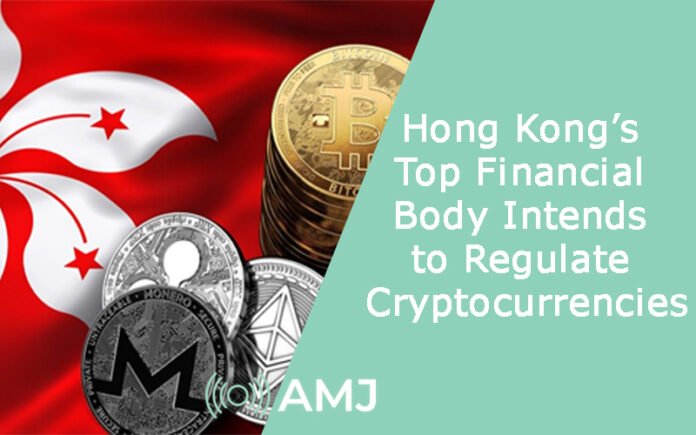Contents
Introduction
Hong Kong, like many other countries, aspires to have a robust and well-rounded framework for regulating the position and trade of crypto assets in its financial system. The Hong Kong Monetary Authority, the financial body in charge of assets, sent out a discussion sheet to the public a few days ago, and it contains a concise yet detailed explanation of how crypto assets will be regulated in the future.
Hong Kong is not a newcomer to the cryptocurrency scene. It follows in the footsteps of the top Asian countrie s in the crypto space, albeit, not hook, line, and sinker. While Hong Kong is not a major player in crypto mining like its Asian counterparts, the region’s retail and institutional involvement in crypto has exceeded even the government’s expectations.
The discussion paper examines a variety of altcoins and also stablecoins, as well as the government’s plan to create a digital version of the Hong Kong Dollar. Regardless of the government’s intentions, the Hong Kong Monetary Authority has joined the international community in assessing the role of crypto assets in our financial system, and discussing what regulations should be put in place.
Major sections
While all sections are pertinent, Sections 4 and 5 piqued our interest after reading the discussion paper. The Hong Kong Monetary Authority detailed its current position on crypto assets and stablecoins, including the potential risks of adoption, laws automatically enacted by other international bodies, characteristics of payment-related stablecoins, and suggestions from many Hong Kong Monetary Authority analysts on how to implement more stringent regulations for digital assets.
In the discussion paper, the Hong Kong Monetary Authority emphasized one critical point. It discussed the growing importance of stablecoins around the world. Tether was the subject of most crypto news a few months ago, when the Hindenburg program offered a $1 million bounty for information refuting their claims of transparency and vague disclosures. That research yielded no controversial results, leading many to believe that stablecoins are the closest bridge between the transparency of cryptocurrency and the widespread adoption of traditional finance.
Aside from Tether, many other stablecoins have been perceived as a widely accepted means of transparent payment. Payment-related stablecoins could be seamlessly incorporated into the traditional financial system, boosting the country’s commerce and economics.
The Hong Kong Monetary Authority wants to make new laws to help the payment-related stablecoins gain relevance in the country’s Payment Systems and Stored Value Facilities Ordinance (PSSVFO) to demonstrate their belief in stablecoins. Some of the laws would guide the issuance and listing of stablecoins while also monitoring the criteria needed to be met for destroying stablecoins.
Opinion on Asset-linked stablecoins
Aside from payment-related stablecoins, the Hong Kong Monetary Authority will keep a close eye on asset-linked stablecoins. Asset-linked stablecoins are more common in the crypto market and are frequently pegged to a fiat currency as a means of payment. Popular ones are the USDC and USDT. The asset-linked stablecoins do not have the potential to pose any risk to the monetary and economic status of a country but seeing that the algorithm-based stablecoins have that risk, there is a slim chance for asset-linked stablecoins to be regulated in the future.
Regulatory Measures
To show that the discussion paper is not a hastily thought out one, the Hong Kong Monetary Authority has proposed a regulatory requirement which will allow different parties to be involved in different aspects of the regulation agreement. The parts which would be given out to others include:
- Authorization of stablecoins
- Management and preservation of the underlying assets
- Establishment and monitoring of anti-money laundering rules.
Do Foreign companies have a place
One part of the discussion paper which is believed to have many arguments and modifications is the place of foreign companies or groups in regulating crypto assets. The Hong Kong Monetary Authority stated that a foreign company or group will not carry out the business act of actively marketing new tokens to the people of Hong Kong without proper registration and documentation with the HKMA. a license will be given to every registered company and just having a branch or one office in Hong Kong will not be deemed good enough for the license. This law ensures total oversight on all the projects and companies that would be available to Hong Kong citizens.
Non-backed crypto assets
Another area the Hong Kong Monetary Authority will focus on is the non-backed crypto assets. These assets are very volatile, and they are often used speculatively. While institutional investors can have the necessary tools and personnels to trade these assets, the retail traders of cryptocurrency in Hong Kong might be at the receiving end of the stick. Two examples of these complex assets are the security crypto assets and meme coins.
Some years ago, November 2018, the Hong Kong’s Securities and Futures Commission sent a note reminding all its intermediaries and stakeholders of the expected standards and acceptable practices as regards virtual asset funds. Though plans would still be innovated to ensure that there are a variety of investment products and activities in the market, all necessary stakeholders need to maintain good practices. The Hong Kong cryptocurrency exchange will be part of the team by the HKMA, ensuring new virtual assets will be registered under the virtual asset service provider licensing regime launched in May 2021.
Separate guidance for AIs
On the Authorized institutions, the HKMA has not completed the regulatory approach to what intermediaries should have. The Hong Kong cryptocurrency exchange will be a vital part of this, but there will most likely be a revamp to ensure it can compete with some of the best crypto exchanges in the world. Further information will be released to the public soon.
Next steps
The public has been tasked with commenting on the various parts of the paper they need clarification on, and the deadline for comments is in two months (31 March 2022).
The feedbacks and other aspects of the paper will be updated in latest, a year, and while Hong Kong citizens wait for that, they can still trade on exchanges like Binance and https://redot.com/











![Index of Money Heist [Season 1, 2, 3 & 4 – All Episodes, Cast and Plot] Index of Money Heist](https://www.asiamediajournal.com/wp-content/uploads/2021/05/Index-of-Money-Heist-3-100x70.jpg)